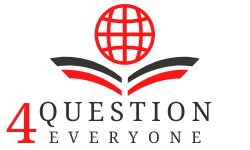Who are the two European Enlightenment thinkers who influenced the revolutionary leaders of Latin America? john lockethomas jeffersonjean jacques rousseaubenjamin franklin
The correct answers are John LockeJean Jacques Rousseau The Age of Enlightenment was the age of scientific thought and reason, and it broke with centuries of religious dogmatism and the many institutions of the old regime they supported, like absolute monarchies. These ruled most of Western Europe, and many were hampered by the revolutions that took place in many countries, such as France (the French Revolution). The revolutionaries followed the principle of the social contract developed by Rousseau and Locke, and claimed popular sovereignty and the right of citizens to elect political representatives by suffrage. The National Assembly was a chamber founded by representatives of the Third Estate, who denounced the lack of representation they enjoyed in the former assembly of kings, known as the States General. This old assembly did not pay attention to the needs of the Third Estate and therefore did not listen to the majority of the underprivileged population of the nation, who formed the Third Estate. The Third Estate founded the National Assembly, revolted against the king and his absolute power, and promulgated a new constitution that included new rights for French citizens. They claim popular sovereignty and the right of citizens to elect their representatives by suffrage. Ideas from the French Revolution, especially claims of popular sovereignty, inspired the American Revolution that followed. Americans did not want to be ruled by foreign kings who were not chosen by the citizens.
John Locke Jean Jacques Rousseau Hope this helps me mark the best
Rousseau Benjamin Franklin
The correct answer is: “Locke and Rousseau who developed the principle of the social contract”. Enlightenment philosophers such as Locke or Rousseau developed ideas and principles that challenged and ultimately overthrew the power structures of the Old Regime. They promoted democratic principles, such as the definition of citizens’ rights bills, universal suffrage, the social contract (citizens elect political representatives to form a government by suffrage, as opposed to the absolute monarchies in force) , and the division of state powers to avoid excessive accumulation. power in certain sectors and, consequently, authoritarian risks. These ideas challenged the status quo, such as unelected British governments in American territories, and influenced revolutionary leaders first in France and later in Latin America.
John Locke and Jean Jacques Rousseau
